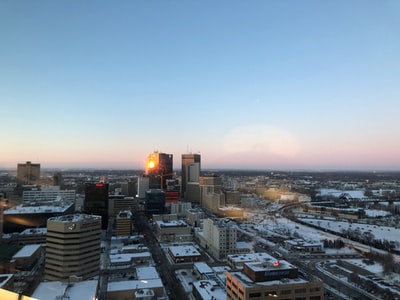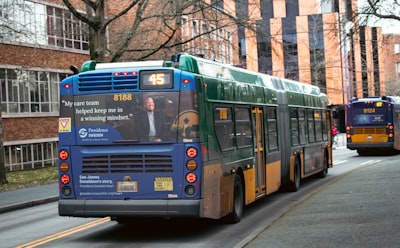Have you ever wondered about the cost of living in Winnipeg? It’s a question that many residents and potential newcomers ponder as they navigate the highs and lows of this bustling prairie city. From affordable housing options to rising food costs, there’s no shortage of factors to consider when it comes to making ends meet in this vibrant Canadian metropolis.
In this article, we’ll delve into the ins and outs of the high price of living in Winnipeg, shedding light on the various challenges and opportunities that come with calling this city home. Whether you’re a seasoned local or a curious outsider, prepare to be astounded by the complexities of day-to-day expenses in one of Canada’s most underrated urban hubs.
So, strap in and get ready to explore the intricacies of life in Winnipeg – it’s a journey you won’t soon forget.
Table of Contents
Housing Affordability Concerns
Housing affordability remains a prevalent concern, with rising rents and property prices putting a strain on budgets. Furthermore, utility and grocery expenses are on the rise, impacting residents’ ability to make ends meet. Transportation costs add to the financial burden, with commuting expenses eating into monthly budgets. Healthcare expenses also weigh heavily on Winnipeggers, contributing to the overall high cost of living in the city. Despite these challenges, residents are finding ways to cope with the escalating costs by budgeting carefully and seeking out cost-saving strategies. As the cost of living in Winnipeg continues to climb, residents are forced to adapt and find creative solutions to navigate these financial obstacles.
Rising Utility and Grocery Expenses
Housing affordability is a major issue in Winnipeg. Rental costs and property prices are high, making it hard for people to find affordable accommodation. Utility and grocery expenses are also increasing, putting a strain on budgets. Transportation costs add to the financial burden.
Healthcare expenses are another concern, with medical costs eating into budgets. To manage finances effectively in light of these rising costs, residents in Winnipeg should implement cost-saving strategies.
To deal with the high cost of living in Winnipeg, residents can use various strategies to ease financial pressure. Budgeting and tracking expenses can help them understand their financial commitments better and prioritize spending. Looking for affordable housing options or exploring shared living arrangements can provide relief from high rental prices.
Using public transportation or alternative commuting methods can reduce transportation costs. Making use of local community resources, like food banks or discount programs, can ease the strain of increasing grocery expenses. By actively managing their finances and seeking cost-saving opportunities, residents can tackle the challenges posed by the high cost of living in Winnipeg.
Impact on Transportation Budgets
With fuel prices, maintenance, and public transportation costs rising, residents are feeling the strain on their wallets. Commuting to work or running errands can quickly impact the cost of living in the city. Many people are opting for biking, carpooling, or using fuel-efficient vehicles to save money. Transportation budgets in Winnipeg are influenced by factors such as vehicle insurance, parking, and toll fees. Reliable transportation is crucial, especially since public transit routes in Winnipeg may not suit everyone. By budgeting and exploring affordable options, residents can better manage the challenges of the high cost of living and maintain their mobility in the city.
The Burden of Healthcare Costs
In today’s busy world, many of us feel overwhelmed by our tasks and responsibilities. To maintain a healthy balance, it’s crucial to prioritize self-care. This means setting boundaries, staying mindful, and making time to relax.
By focusing on self-care, we can enhance our well-being and effectively manage daily challenges.
Strategies for Coping with the Rising Costs
Housing affordability is a major concern as rents and property prices continue to increase, putting pressure on budgets. Utility and grocery expenses are also rising, making it harder for families to make ends meet. Transportation costs are increasing due to fuel prices and maintenance, making commuting and running errands more expensive.
In addition, healthcare costs in Winnipeg are adding to residents’ financial burden. From insurance premiums to out-of-pocket expenses, accessing quality healthcare services can be costly. With the high cost of living in the city, people are looking for ways to save money and manage their budgets. It is important to prioritize health and well-being while dealing with the financial challenges caused by rising costs in Winnipeg.
Nestled between the prairies and the Great Lakes, Winnipeg offers a unique blend of urban sophistication and small-town charm. But before you pack your bags and head to the Peg, it’s important to consider the cost of living in this bustling city.
With affordable housing options and a lower overall cost of living compared to other major Canadian cities, Winnipeg is an attractive destination for newcomers looking to stretch their dollar. However, factors such as transportation costs, healthcare expenses, and utilities can quickly add up.
Moving To The Peg! can help you navigate these financial considerations and provide valuable insights into how to make the most of your budget. From finding affordable housing options to budgeting for everyday expenses, Moving To The Peg! is your go-to resource for settling into this vibrant city without breaking the bank.
Summary
As the snow melts and the city comes alive, Winnipeg residents are faced with the harsh reality of the cost of living in this vibrant yet challenging city. From the soaring prices of housing to the never-ending increase in utility bills, it seems like every aspect of life in Winnipeg comes with a hefty price tag.
And yet, despite the financial strain, there is a sense of resilience and determination among the people who call this place home. They see beyond the numbers on their paychecks and strive to create a life filled with joy, connection, and opportunity.
Yes, living in Winnipeg may not be cheap, but it is certainly rich in culture, community, and heart. So as we navigate the ups and downs of this city’s economy, let us remember that the true cost of living is not measured in dollars and cents, but in the experiences we share and the memories we create.
In the end, it is these intangible treasures that make Winnipeg a place worth calling home.
When I first moved from Zambia to Winnipeg, I had no idea what to expect. The winters were colder than anything I had ever experienced, the culture was new, and navigating things like housing, jobs, and even the bus system felt overwhelming. I spent hours researching, learning from trial and error, and leaning on the kindness of locals who helped me adjust. That’s why I started MovingToThePeg.com—to make the transition easier for others. Whether you’re coming from Africa, Asia, or another part of Canada, I want this site to be a resource where you can find real, practical advice about settling in Winnipeg. From choosing the right neighborhood to finding community, I’m here to share everything I’ve learned so you can feel at home faster.








Leave a Reply